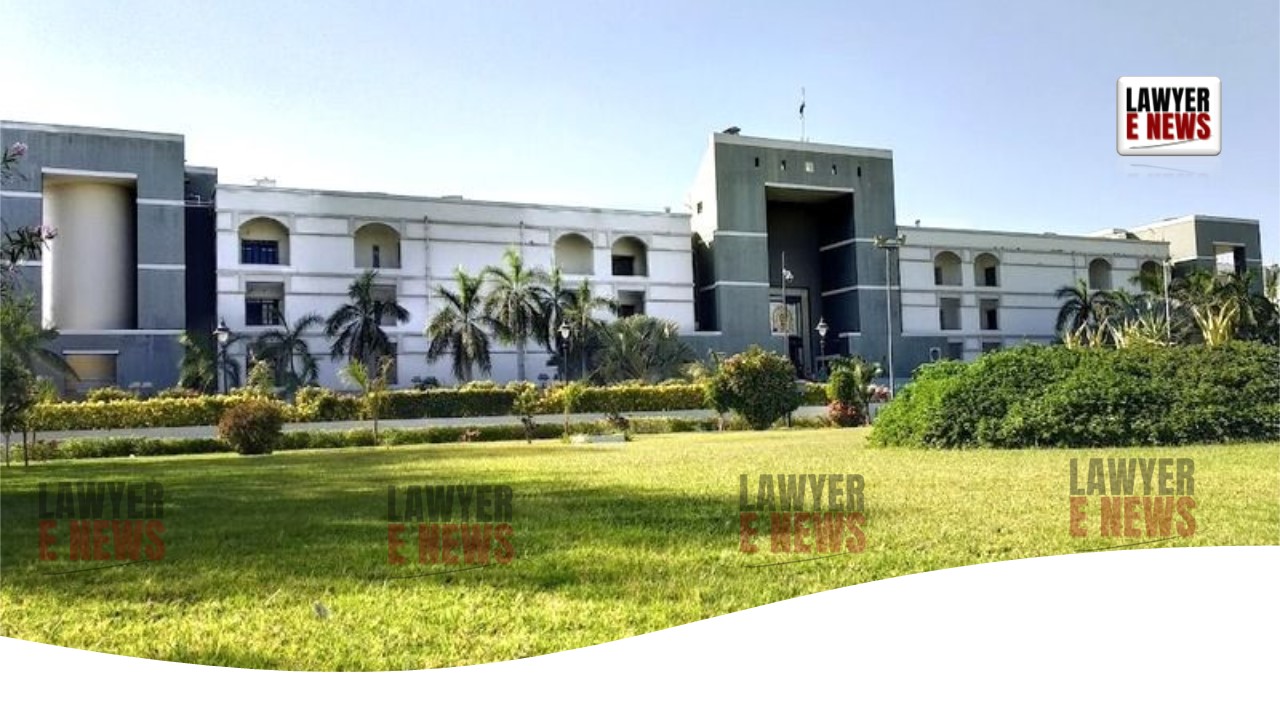-
by Admin
15 February 2026 5:35 AM



Gujarat High Court upheld the Gujarat Revenue Tribunal's (GRT) refusal to condone a delay of 365 days in filing a revision application under Section 70(B) of the Gujarat Tenancy and Agricultural Lands Act. The High Court emphasized that sufficient cause for delay must be established with due diligence, and the Supreme Court's COVID-19 limitation extensions could not be invoked for cases where the limitation period expired prior to the pandemic.
"COVID-19 Limitation Extensions Benefit Only Vigilant Litigants"
The dispute arose when the petitioner, Ishwarbhai Balubhai Patel, approached the Gujarat Revenue Tribunal (GRT) to challenge an order of the Deputy Collector, Pardi, dated January 23, 2019. This order overturned a prior ruling by the Mamlatdar and ALT, Umargam, which had recognized the petitioner as a tenant under Section 70(B) of the Gujarat Tenancy and Agricultural Lands Act on October 18, 2017. However, the petitioner filed the revision application on February 25, 2022, resulting in a delay of 365 days. The GRT refused to condone the delay, citing insufficient grounds for condonation, prompting the petitioner to move the High Court.
The petitioner argued that the delay was caused by his lack of legal awareness, as he belonged to a tribal community, resided in a remote area, and faced hardships during the COVID-19 pandemic. Conversely, the private respondents highlighted that the petitioner was well aware of his legal remedies, as evidenced by his filing of a civil suit in 2019 related to the same matter.
The petitioner sought to rely on the Supreme Court's orders extending limitation periods during the COVID-19 pandemic. However, the High Court noted that the limitation period for challenging the Deputy Collector's order had already expired well before the pandemic began in March 2020. Citing Sagufa Ahmed v. Upper Assam Plywood Products Pvt. Ltd. [(2021) 2 SCC 317], the High Court reiterated that the Supreme Court's extensions applied only to litigants whose limitation period fell during the pandemic, and not to those whose delays predated it.
“The law will assist only those who are vigilant about their rights and not those who sleep over them,” the court observed, quoting the Supreme Court.
The petitioner claimed ignorance of legal remedies and financial hardship as reasons for the delay. However, the court found these explanations untenable, especially since the petitioner had filed a Regular Civil Suit (No. 21/2019) challenging the same Deputy Collector’s order in April 2019.
The court remarked: “The petitioner was legally aware and vigilant enough to file a civil suit but chose not to challenge the Deputy Collector’s order before the GRT within the prescribed time.”
The court relied on the principle laid down in Majji Sannemma v. Reddy Sridevi [(2022) 2 SCC 309], stating that limitation rules must be applied rigorously, and liberal interpretations are unwarranted in cases involving negligence or lack of bona fides.
The petitioner sought condonation on equitable grounds, emphasizing the substantive right recognized by the Mamlatdar. However, the court clarified that equitable considerations could not override statutory limitations. Referring to Union of India v. Jahangir Byramji Jeejeebhoy [(2024 SCC OnLine SC 489)], the court emphasized that limitation rules are based on public policy and must not be diluted.
“Delay should not be excused as a matter of generosity, particularly when it causes prejudice to the opposite party,” the court stated.
The High Court dismissed the writ petition, affirming the GRT's order rejecting the delay condonation application. It held that:
The petitioner failed to demonstrate "sufficient cause" for the delay, especially given his prior legal actions challenging the same issue.
The Supreme Court’s COVID-19 limitation extensions were inapplicable, as the delay predated the pandemic.
Procedural rigour under limitation law cannot be compromised on equitable grounds alone.
The court concluded: “The rules of limitation are based on the principles of sound public policy and equity. They ensure that legal disputes are resolved within a reasonable time, preventing undue prejudice to the other party.”
Date of Decision: January 7, 2025
